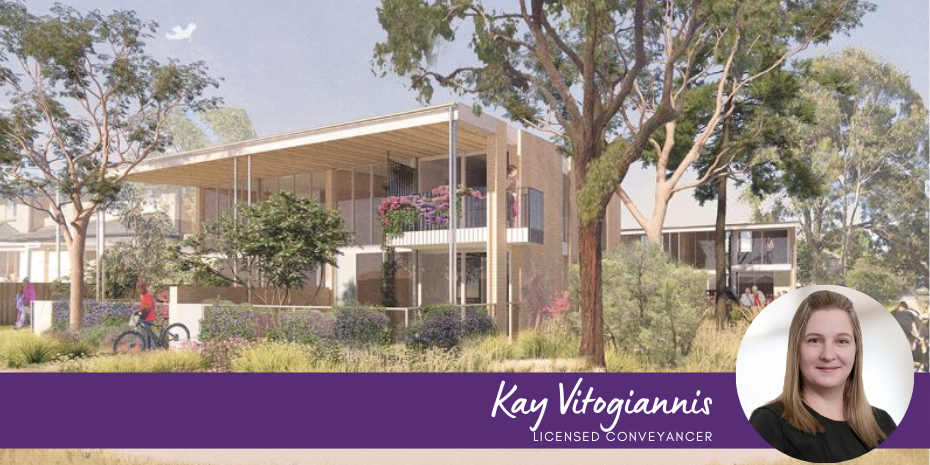When thinking about purchasing a property, it is always recommended that you contact your lender or mortgage broker as early as possible to get the process underway and determine your borrowing capacity.
There are a few different stages of approvals that you will need to get through before the loan is guaranteed to be paid on settlement to complete your purchase.
What does pre-approval on a home loan mean?
A pre-approval is issued by the lender based on a very basic assessment of your income and expenditure and your lender will advise you on your borrowing capacity so that you are aware of what you are able to offer when you find a property.
Does pre-approval guarantee a home loan?
A pre-approval is not a guarantee that the amount you want to borrow is going to be advanced to you. It is not even a guarantee that you will obtain an unconditional loan approval. From the time you obtain a pre-approval and the time that you are successful with an offer on a property, it may be that you have changed jobs and earning less than what you were or there may be a new addition to your family on the way, whereas Mum or Dad may take time off to look after the family, which will obviously affect your income and your ability to repay the loan. It may not even be your situation that changes, it could be that your lenders policies or procedures have changed.
How can I get pre-approved for a home loan?
Whilst you can obtain a pre-approval online with some lenders, it is always better to have a face to face or telephone discussion with your lender. If you complete the online application to try and work out your borrowing capacity and then find a property, you will then need to meet with the Home Loan Manager anyway where you will likely be asked to provide the following:
- Evidence of Income, whether it be pay slips, letter from employer or tax returns;
- Evidence of any rental income or bonuses;
- Evidence of all liabilities, whether it be credit cards, buy now, pay later, car loan, HECS debt;
- Evidence of your assets, which would be your savings, and equity that you may have in other properties.
- Your lender will carry out a credit check to ensure that you do not have any defaults and review your financial credit history.
It is important to note that pre-approvals only last 3 to 6 months depending on your lender, therefore, if you have not yet found your dream home before the expiry date, we recommend you contact your lender to discuss either extending the approval or pre-approving again.
What is a conditional approval on a home loan?
A conditional approval means exactly that, your loan is approved subject to certain conditions being met before it moves to the final stages.
What are the steps after conditional approval?
It may be subject to satisfactory valuation – The lenders will almost always have a valuation report completed so that they can ensure that the value of the property does not differ with the purchase price you are paying. Banks are not concerned if the property value is higher than what you are paying, but if the value of the property is less than what you are paying, the bank will more than likely not be willing to loan you the amount that you originally applied for.
The reason for this is that the banks want to ensure that if you default on your loan repayments, that they can sell the property at a price that will cover the outstanding loan amount.
If the property is valued at less and you are contributing a substantial portion of cash to contribute towards the purchase, you may still be able to borrow (only if the loan amount is not for the full price of the property), provided they see evidence of your bank statements showing the available funds.
It may be subject to another debt being repaid – The lender may be concerned with your ability meet the loan repayments on top of your existing debts and may require the repayment of a HECS debt, closure of a credit card or payment of a car loan. These are only examples, and these conditions would depend on each borrower’s situation.
It may be something simple – Like the bank needing to see a of the special conditions of the contract or evidence of the deposit paid (if the contract is on a cooling off period).
There are endless other reasons that a loan approval may be conditional upon something else happening and this depends on the lender’s terms and the borrower’s situation.
Conditional approval also does not guarantee that the funds will be advanced at settlement.
What happens after unconditional approval?
Once all the conditions have been met and satisfied, an unconditional approval is issued and this is the document that provides you with the certainty that you need to be able to proceed to lock in the property that you have been approved to purchase, provided of course, that the loan amount is what you requested.
What is next after conditional approval
Prior to the loan being advanced and the funds being uploaded to the settlement workspace, you will be required to sign loan/mortgage documents which are prepared by the lender or the lender’s solicitor.
If you do not sign these documents, the loan cannot be completed, and the funds will not be released.
At the time of returning the signed loan documents, you may be required to provide the lender with evidence that you have an insurance policy in place as at the date of settlement. The reason for this is that in the event of damage to the property caused by fire or flood and the property not be insured, the lender will not have a property to sell, or in the event of damage, the property will almost certainly decrease in value.
The mortgage document is registered on the title to your property and in exchange for the security they will have over your property, the loan funds are made available and released.
ABOUT AMY DUGUID:

Amy joined the Coutts Lawyers and Conveyancers team in 2020 as a Licensed Conveyancer and Justice of the Peace in our Camden office. She was born in Camden and has been based in Camden most of her working life, therefore has created strong personal and working relationships in the local community and enjoys giving back to her hometown.
Amy brings 20 years of conveyancing experience to Coutts and is dedicated to guiding her clients throughout the selling and buying process.
For further information please don’t hesitate to contact:
Amy Duguid
Licensed Conveyancer & JP
info@couttslegal.com.au
1300 268 887
Contact Coutt Lawyers & Conveyancers today.
This blog is merely general and non specific information on the subject matter and is not and should not be considered or relied on as legal advice. Coutts is not responsible for any cost, expense, loss or liability whatsoever in relation to this blog, including all or any reliance on this blog or use or application of this blog by you.



